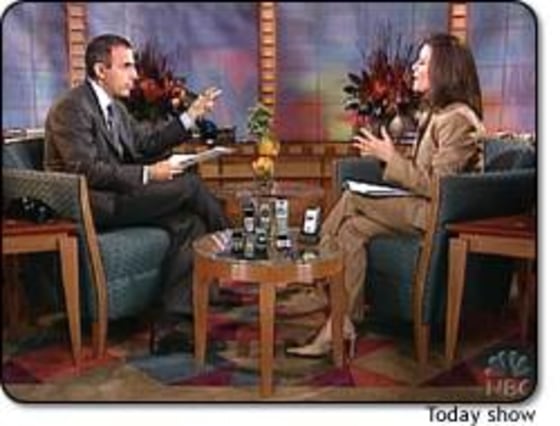New rules have gone into effect today letting people switch their cell phone service without switching their phone numbers. Some have called the long-awaited rule change “wireless emancipation.” It’s expected to set off a scramble as customers line up to shop for the best cell phone deals.
Michael PowellL, chairman of the Federal Communications Commission, says surveys show some 21 percent of people with cell phones may be interested in switching.
But having waited years for the freedom to switch mobile phone companies without losing their phone numbers, cell users might not want to be among the first in line to make the switch, many experts say.
Wireless companies assert they are ready, having added the systems and staffing needed to make the process of switching carriers run smoothly.
Phone companies have collectively spent about $1 billion to make their networks ready for the technical challenge of swapping phone numbers with rivals. SG Cowen, a Wall Street investment bank, forecasts that wireless companies could spend as much as $3 billion more next year in efforts to hold onto their customers and win new ones.
Currently, the six major U.S. wireless companies vie aggressively for the nation’s 152 million cell phone users.
Critics say that the companies spent so much time and effort fighting to delay the new rules that their preparations may prove inadequate for the expected torrent of customers wanting to bring their cell numbers to a different wireless carrier.
Most of the carriers did not sign interconnection agreements or begin extensive testing until the past month, for what by all accounts is a monumental undertaking.
“Minimally, there’s 11 transactions or handoffs of information between two carriers and the (phone number) database,” and that’s just to “port” a single phone number, explained Helen Harris, spokeswoman for TSI Telecommunication Services Inc., the company hired by five of the six national cell companies to serve as intermediary for the process.
TSI, based in Tampa, Fla., has hired an additional 200 workers to handle the expected workload for verifying information and troubleshooting problems between carriers.
Similarly, carriers such as Verizon Wireless and T-Mobile have opened new facilities with hundreds of new hires to deal specifically with the new process.
At least one cellular carrier, Sprint, encountered major technological problems during multi-carrier tests last week, two industry sources told The Associated Press. Sprint characterized the problem as no more significant than any other carriers have encountered during testing, and said it has since been fixed.
Earlier this month, AT&T Wireless was temporarily unable to activate tens of thousands of new customers because of a glitch in software that was designed to help sales and customer service representatives handle inquiries related to the new phone number rules.
Regardless of preparations and testing, the biggest wild card simply may be just how many people actually try to move their phone numbers to new carriers starting Monday.
“Industry estimates have varied widely. We’ve heard estimates as high as 9 million on day one. We believe it will be more in line with 1 million, and we have engineered our systems to handle more than the anticipated volumes,” Harris said.
But if the number of requests approach millions, she said, “It’s reasonable to expect some hiccups on day one with an implementation of this magnitude.”
Although the Federal Communications Commission has set a target of 2.5 hours for carriers to complete the transfer of a number to a rival, experts and most of the companies say the process is likely to take at least a day at first.
“We’ll be a heck of a lot better at this on Dec. 30 than on Nov. 30,” said Howard Waterman, a Verizon spokesman.
Martin Dunsby, an analyst with the consulting firm inCode Telecom Group, said that it could take weeks before the process is “seamless and speedy” and that problems will persist much longer.
Other glitches may depend on whether carriers intentionally impede the process when they lose a customer.
“Some carriers will be quite particular with information,” said Sprint spokeswoman Jennifer Walsh. For example, she said, a carrier may hold up the process if customer abbreviates a word in his address such as “street” as “St” while it appears as “St.” on the old carrier’s bill.
In addition, many people lured to new carriers by sweet promotions and rosy promises about service may be disappointed once their switch goes through.
“Verizon is raising the bar. They’ve made very strong claims. That has potentially set them up to disappoint a few people,” said Dunsby, adding that Sprint has also tried to snare customers with claims of network superiority.
“Any carrier that positions that you will have universal coverage is setting the bar pretty unrealistically high. From a technological perspective, none of the networks are substantially better. “
In fact, he predicts a reverse flood of requests by customers wanting to move their numbers back to their old service.
“In six weeks, we may see a big un-port,” Dunsby said. “I think it’ll be a grass wasn’t greener effect.”
The Associated Press and Reuters contributed to this report.
